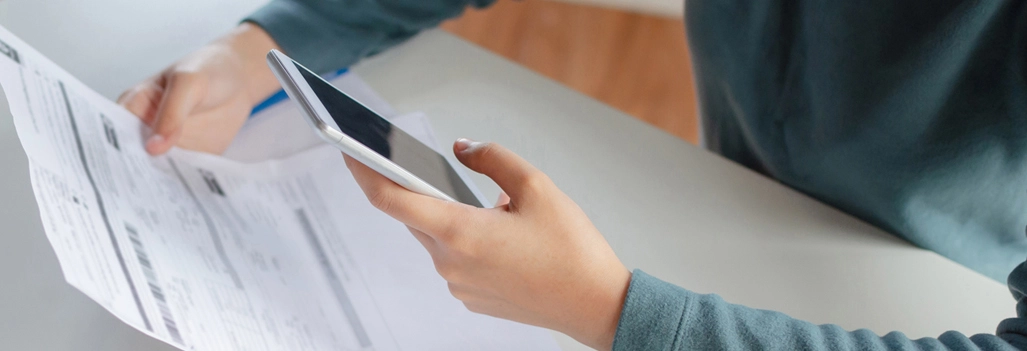If you or someone you care about is struggling with drug or alcohol dependence, it may seem like everything seems so hopeless and you don’t know where to start. The good news is that addiction is a treatable illness and by using proven and professional treatment methods, recovery from drug and alcohol addiction can be embraced.
In this guide we will explain how a holistic treatment approach can enable you or a loved one to begin and sustain a life without drugs or alcohol.
What is Addiction Rehab (Rehabilitation)?
When we refer to ‘rehab’ for addiction, it encompasses the psychological interventions and medical treatments required to tackle dependencies on substances such as opiates and illegal drugs including meth.
Rehab approaches are best when they are personalized to your lifestyle needs, and may encompass inpatient programs, outpatient programs, medically-managed detoxes and aftercare.

Facts & Statistics about Addiction in San Diego
Prevalence of Substance Use Disorder, by Drug Type
(IN THOUSANDS)
- 2,7578.5%Any Substance
- 2,0886.4%Alcohol
- 1,0683.3%Ilicit Drugs
- 2060.6%Pain Medication
Drug- and Alcohol-Induced Deaths by Age Group, California, 2016
- Alcohol-Induced
- Drug-Induced
- 18 to 250.5
- 9.6
- 26 to 354.3
- 13.9
- 36 to 6424.2
- 22.9
- 65+23.7
- 9.4
Drug Use, by Selected Type and Age Group California, 2015 to 2016
- 12 to 17
- 18 to 25
- 26+
- Marijuana*13.2%
- 34.0%
- 13.5%
- Misuse of Pain Medications3.5%
- 8.0%
- 4.3%
- Cocaine0.8%
- 7.2%
- 1.8%
- Heroin0%
- 0.4%
- 0.2%
What are the treatment options available in San Diego?
By integrating treatment options, addiction specialists can help you to pinpoint and treat the main causes of your substance dependencies. Although treating the symptoms of dependence is crucial, you also need to build coping mechanisms to address the issues that lead to your drug addiction or alcohol addiction.

Private Residential Programs
If you live at the center where you are receiving therapy, you are in a residential treatment program. Its core benefit is that you can receive integrated treatment and support all through the day.
There is notable value in taking yourself away from the home environment and becoming fully focused in the rehab program, because you are not sensitive to the triggering environments that may have caused you to abuse drugs.
You are less likely to relapse if you finish your addiction treatment program in a controlled facility where the environment is supportive. Inpatient treatment programs are good for patients with intense drug and alcohol dependencies, co-occurring illnesses or dual diagnosis.
You can begin the first steps to recovery by enrolling in a residential program, however to overcome the challenges of the first year of addiction recovery, you need to work at it constantly. On completion of your inpatient addiction treatment program, you will transition towards greater independence as you consider your goals for your new sober life.
Do You Need Help?
Our addiction advisers are here to help you.

Sober Living Programs
Sober living treatment programs enable you to have more stability in your life, with guidance and a support structure. Sober living programs feature:
- Guidance every day from a house manager
- Establishing parameters for consistent recovery behavior
- Fostering new friendships with others in recovery who will be going through similar kinds of issues
Outpatient Programs
Outpatient rehab programs provide more flexibility as you can attend work commitments while living at home, but you attend the rehab center for addiction treatments.
Outpatient programs offer addiction recovery through:
- Education around substance abuse
- Counseling and therapy with the use of group support or one-to-one sessions – The duration of outpatient treatment is 3/4 months and may last longer than a year, this will change based on your personal requirements.
Detox Only Programs
A detox program is the first step in rehab and is performed to address your physical dependency on a drug by removing it from your system. Symptoms of withdrawal usually start during the detox phase because your body begins to stabilize without substances it was dependent on.
This initiates the recovery journey, which is ongoing as you face the root reasons for your dependency in order to avoid repeating the cycle long-term. You may experience withdrawal symptoms and cravings for a period of time after your detox program is complete. You can limit the odds of relapse by learning coping strategies to apply to your new life.
Paying for Private Treatment
The cost of private treatment may be claimed back through your health insurance or funded with your own money. Many private insurance providers will contribute to a portion of the costs associated with a rehab program, which would include a detox plan, therapy program and aftercare support. The amount covered for your treatment will differ depending on your provider and policy.
We advise that you check to see the amount of cover you can claim before enrolling in a treatment plan. By visiting our Verify Your Insurance page, you can find out what cover you are able to claim.
Clients are liable for the cost of treatment if they do not claim from their insurance provider. In some cases, it may be possible to opt for a payment plan if the total cost is too much upfront.
State Funded Programs
State-funded rehabilitation programs were created to assist people without the financial means to recover from alcohol addiction or substance addiction.
These programs utilize government funds from state budgets, Medicaid and federal government to provide addiction recovery by offering:
- Medical assessment and detox if required
- Rehab therapy and extended support
So that you can enroll in a state-funded treatment program you need to give proof that you live in a low income household or do not have a private healthcare policy:

- Where you live
- The amount you earn
- Evidence about your substance or alcohol abuse
- Living in the US legally
Visit https://www.grants.gov/ for more information about the application process.
You can also locate direct contact details for your state agency by clicking here: https://www.samhsa.gov/sites/default/files/single-state-agencies-directory-08232019.pdf
The following state-funded addiction rehab programs are available in San Diego:
AToN Center
3250 Country Rose Circle, Encinitas, California 92024
858-759-5017
https://www.naatp.org/resources/Downtown Family Health Center at Connections
1250 6th Avenue, Suite 100, San Diego, CA 92101
619-515-2300
www.fhcsd.org/alcohol-and-drugservices/Sober Life Recovery Solutions
1446 Front Street, Suite 400, San Diego, CA 92101
619-542-9542
soberlifesd.com/
Maintaining Addiction Recovery in San Diego
Leaving treatment and returning home can prove difficult for people in early recovery. You had the benefits of professional support in a controlled environment at the rehab center. When you depart rehab there will be some new challenges that you will have to learn to cope with. Long term recovery is more challenging if you have a severe dependency or if you return to your new life without social support structures in place. Guidance and aftercare support is integral in the early stages of recovery to help prevent relapse.
The following AA/NA meetings are available in San Diego:
Mammoth Monday Book Study Group
Discussion and Participation:
218 Sierra Manor Road, Mammoth Lakes, California 93546
Monday: 5:00 pm – 6:30 pm
https://www.narcotics.com/na-meeting/What It's Like Now Group
Study: 1550 Market Street, San Diego, California 92101
Wednesday: 4:00 pm – 5:00 pm
https://www.na.org/meetingsearch/Hang in There
Open, Discussion, Stamp and 11 steps: 1944 30th St, South Park, CA, 92102
Thursday: 9:00 am – 10:00 am
https://www.sandiegona.org/

Aftercare & Alumni Programs
Aftercare programs are an extension of rehab once you leave the rehab center. Because life doesn’t always happen the way we want it to, and 60% of clients may relapse upon leaving treatment, staying active in an aftercare program is needed support for staying sober long-term.
Once you reach the end of your rehab program you must think about the counseling and therapies that are most useful to long-term abstinence and an aftercare package will be created to support you. One of the benefits of finishing rehab is joining an alumni community program, which entitles you to liaise with former clients and staff as a community based recovery community.
You will gain access to Alumni events and receive guidance and encouragement from ex-clients who are in recovery long-term. Plus, you may want to take the opportunity to be supportive of others if you choose to.
Support Groups (Fellowship Meetings)
Support groups will always be a great resource because they incorporate social responsibility into addiction recovery. Addiction support groups including AA (Alcoholics Anonymous) and NA (Narcotics Anonymous) provide recovery support utilizing the 12 steps and regular meetings.
By attending local support group meetings you will hear, and learn from, the recovery stories of other people. By building friendships and committing to the programme, individuals in recovery can feel empowered to take responsibility for themselves and protect those around them.
Support for Families & Children Affected by Addiction
Addiction negatively impacts everyone living in the household to some extent. Although the individual struggling with addiction certainly needs all the help they can get, other members of the household also need assistance.
Participating in family support groups can help you to cope better, as well as empower you to provide greater support to those struggling with dependency.
Your family members may benefit from support groups including:
- Parents of Addicted Loved Ones
- SMART Recovery Family & Friends
- NAMI Family Support Groups
- Al-Anon
- Families Anonymous
- Alateen
- Nar-Anon










